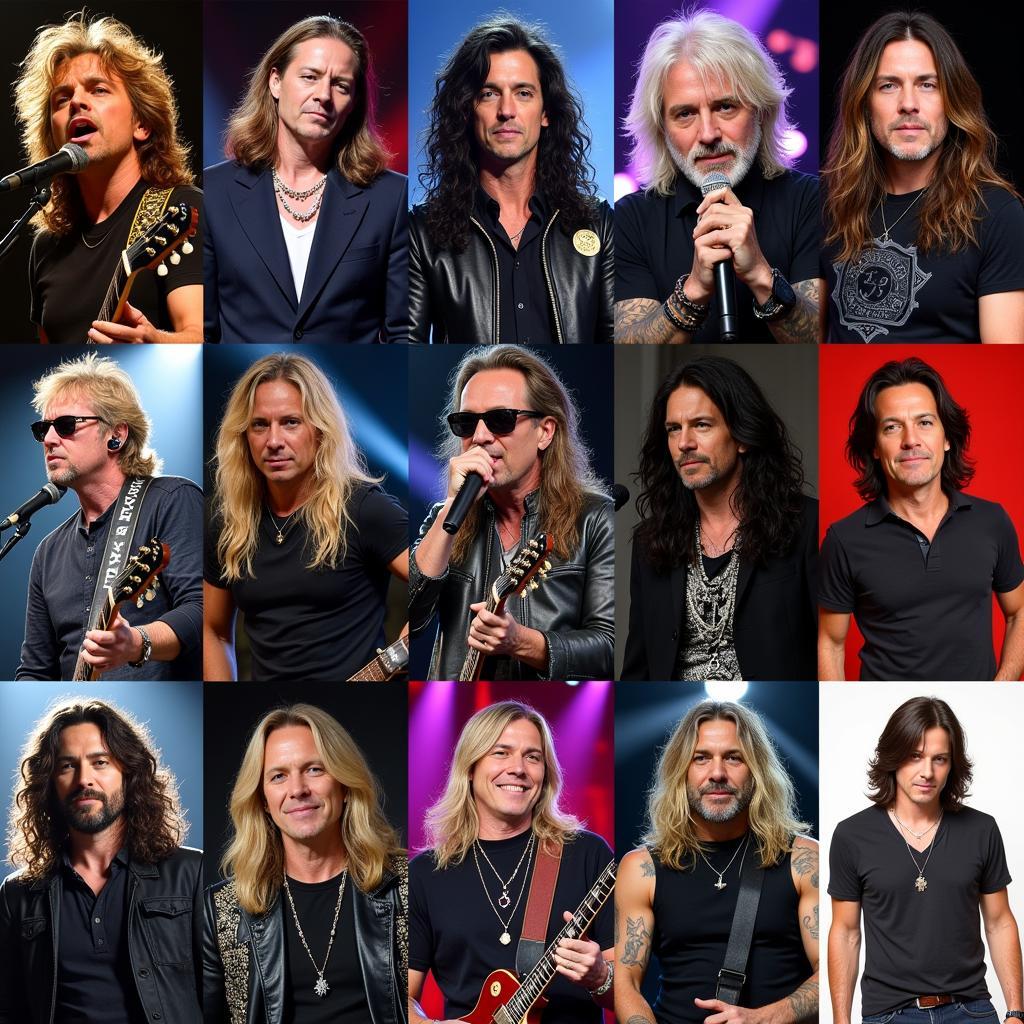Music is a universal language, and talking about your favorite tunes is a fantastic way to connect with others. Whether you’re chatting with new friends, practicing your English, or simply expressing yourself, being able to discuss your musical preferences is a valuable skill. This guide will equip you with the vocabulary and phrases you need to confidently talk about your favorite music in English.
 Talking about favorite music in English
Talking about favorite music in English
Describing Your Favorite Genres
What kind of music gets your toes tapping? From classical concertos to rocking riffs, being able to describe your preferred genres is essential. Are you a fan of the soothing melodies of classical music? Or perhaps the energetic beats of electronic dance music (EDM) get you moving? Maybe you find solace in the heartfelt lyrics of folk music or the raw power of heavy metal. Whatever your preference, knowing the specific genre names will allow you to express your tastes accurately. For example, within rock music, you can further specify your liking for alternative rock, punk rock, or indie rock.
Knowing specific vocabulary helps you describe the nuances within a genre. For instance, you could say “I love the complex harmonies and intricate instrumentation of progressive rock.” This demonstrates a deeper understanding and appreciation for the music. Speaking of intricate melodies, you can find inspiration in other forms of artistic expression, as explored in viết về cuốn sách yêu thích của em.
Exploring Different Musical Styles
Beyond genres, understanding musical styles allows you to articulate your preferences more precisely. Do you enjoy the improvisational nature of jazz? Or perhaps the rhythmic complexity of Latin music appeals to you? Knowing these terms lets you pinpoint exactly what resonates with you. You might say, “I’m drawn to the soulful vocals and bluesy guitar riffs of classic rock.”
Talking About Specific Artists and Bands
Expressing your admiration for particular artists is a crucial part of discussing music. You can use phrases like “I’m a huge fan of…”, “I really appreciate the work of…”, or “I’m obsessed with…” followed by the artist’s or band’s name. For example, “I’m a huge fan of Coldplay. Their music always lifts my spirits.”
 Favorite Bands
Favorite Bands
Expressing Your Love for Specific Songs
When talking about individual songs, you can use phrases such as “My favorite song is…”, “I can’t get enough of…”, or “This song always makes me feel…” For instance, “I can’t get enough of ‘Bohemian Rhapsody’ by Queen. It’s a masterpiece.” You can also talk about the specific elements of the song that you enjoy, such as the melody, lyrics, or instrumentation. For example, “I love the soaring vocals and powerful guitar solo in ‘November Rain’ by Guns N’ Roses.” Sometimes, expressing admiration in other languages can add a touch of uniqueness to your conversations, just as explored in ngữ pháp sở thích tiếng nhật.
Discussing Musical Elements
Knowing how to describe specific musical elements will enrich your conversations about music. You can use terms like melody, harmony, rhythm, tempo, dynamics, and timbre to express your opinions in a more nuanced and informed way. For example, “I love the driving rhythm and fast tempo of this song. It makes me want to dance.”
What’s your favorite instrument?
Talking about your favorite instruments can also be a great conversation starter. Do you enjoy the mellow tones of the saxophone? Or perhaps the percussive power of the drums captivates you? Sharing your preferences can lead to interesting discussions and deeper connections with fellow music lovers. Just like sharing your favorite songs, sharing other hobbies like movies can also be a great conversation starter, as highlighted in all star 2016 thích khách.
Sharing Your Musical Experiences
Talking about your personal experiences with music can add a personal touch to your conversations. Have you ever seen your favorite artist live in concert? Did a particular song help you through a tough time? Sharing these anecdotes can make your conversations more engaging and memorable. For instance, “Seeing U2 live in concert was an unforgettable experience. The energy in the stadium was electric.” If you enjoy expressing your feelings through music, you might also find it interesting to explore how lyrics can convey emotions, as discussed in chầm chậm thích anh lời bài hát. Or perhaps delve into expressing preferences in other languages, such as Chinese, as demonstrated in viết 1 đoạn văn bằng tiếng trung về sở thích.
Conclusion
Talking about your favorite music in English is a fantastic way to connect with others, practice your language skills, and express yourself. By using the vocabulary and phrases outlined in this guide, you’ll be able to confidently share your musical passions and engage in meaningful conversations about the music you love.
FAQ
- How can I find new music in English?
- What are some good English music websites or apps?
- How can I learn the lyrics to English songs?
- What are some common English idioms related to music?
- How can I improve my English pronunciation when singing?
- What are some good English music podcasts?
- How can I start a conversation about music in English?
Scenarios
- Scenario 1: You meet someone new at a party and want to find common ground. Asking about their favorite music can be a great icebreaker.
- Scenario 2: You’re in an English class and the topic is music. Being prepared to talk about your favorite music will allow you to participate actively in the discussion.
- Scenario 3: You’re traveling abroad and want to connect with locals. Sharing your musical tastes can be a fun way to learn about different cultures and make new friends.
More Resources
- Explore other articles on Thích Thả Thính for more tips on communication and connection.
Need Help?
For personalized support and guidance, contact us:
- Phone: 0915063086
- Email: [email protected]
- Address: LK 364 DV 08, Khu đô thị Mậu Lương, Hà Đông, Hà Nội 12121, Việt Nam
Our customer service team is available 24/7.